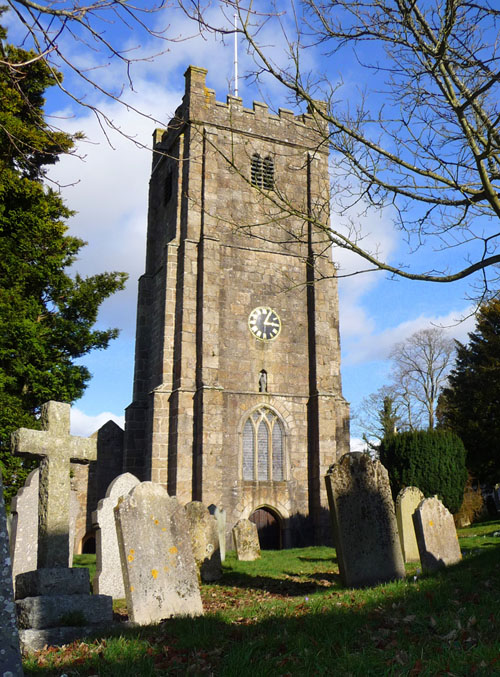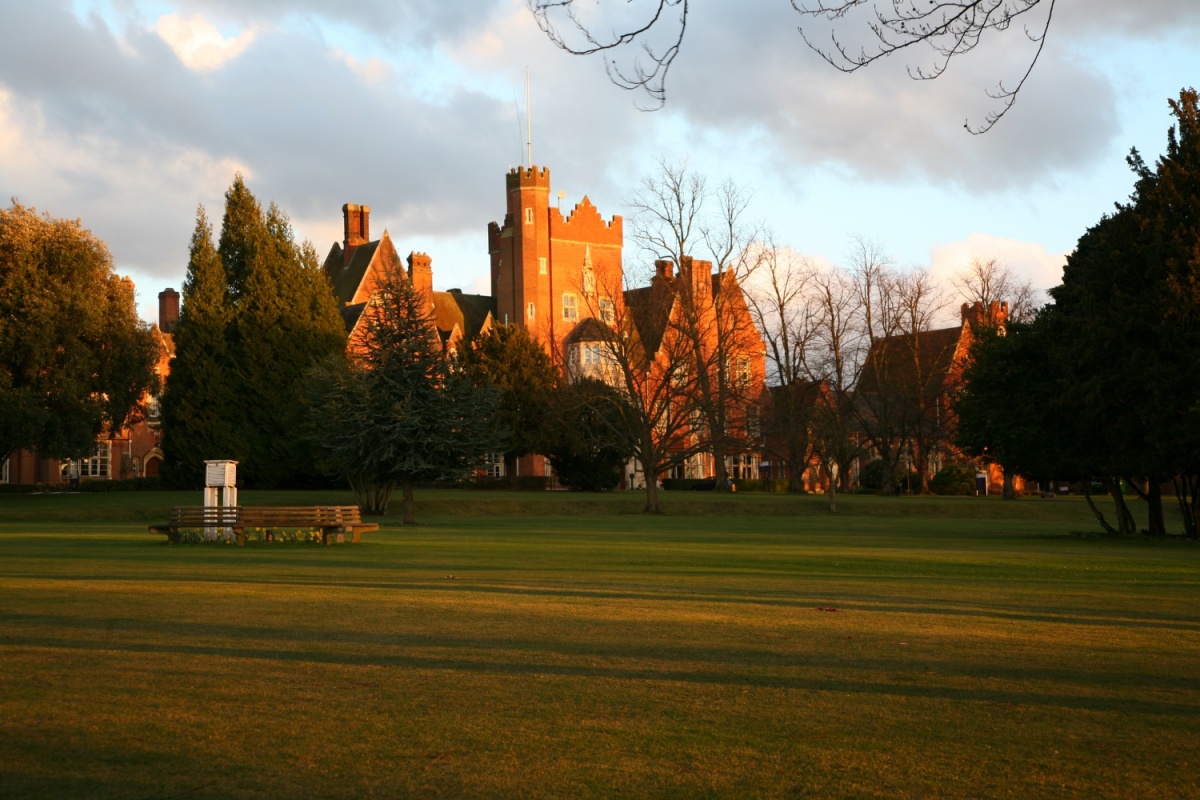|
Hugh Llewellyn Glyn Hughes
Hugh Llewellyn Glyn Hughes, (25 July 1892 – 24 November 1973) was a senior British military officer in the Royal Army Medical Corps and later a medical administrator, educationalist and sports administrator. Hughes served in both the First and Second World Wars and is notable for his role in the care and rehabilitation of the victims of Bergen-Belsen concentration camp. Early life Hughes was born in Ventersburg, Orange Free State on 24 July 1892 and spent the first two years of his life in South Africa, after his father emigrated to take a medical post. When Hughes was two his father died from an infection caused during an operation. Hughes and his mother returned to Britain, but at the age of seven Hughes was diagnosed with having curvature of the spine and at one time was confined to a spinal carriage. He was educated at Epsom College and, with his health issues behind him, he threw himself into school life. After leaving school, like his father before him, Hughes decided t ... [...More Info...] [...Related Items...] OR: [Wikipedia] [Google] [Baidu] |
Ventersburg
Ventersburg is a small town in the Lejweleputswa District Municipality of the Free State (province), Free State province in South Africa, 148 km north of Bloemfontein. History It was established on the farm Kromfontein which was owned by PA Venter who died in 1857 in South Africa, 1857. His son allowed a Reform Church to be established on the farm in 1864 in South Africa, 1864 and by 1871, the first plots of the original farm were sold. Ventersburg was declared on 6 May 1873. The Dutch Reform Church was built in Ventersburg in 1891 in South Africa, 1891 but it was burnt down in 1900 by the British forces during the Second Boer War, Boer War. The church was later re-built in 1912. Law and government Government In 1903 in South Africa, 1903, Ventersburg became a municipality. On 5 December 2000 it was incorporated into the Matjhabeng Local Municipality along with the city of Welkom and the towns of Allanridge, Hennenman, Odendaalsrus, and Virginia, Free State, Virginia. Under ... [...More Info...] [...Related Items...] OR: [Wikipedia] [Google] [Baidu] |
Legion Of Merit
The Legion of Merit (LOM) is a Awards and decorations of the United States military, military award of the United States Armed Forces that is given for exceptionally meritorious conduct in the performance of outstanding services and achievements. The decoration is issued to members of the eight uniformed services of the United States Note: National Oceanic and Atmospheric Administration Commissioned Officer Corps Amendments Act of 2012 amended the Legion of Merit to be awarded to any uniformed service. as well as to military and political figures of foreign governments. The Legion of Merit (Commander degree) is one of only two United States military decorations to be issued as a neck order (the other being the Medal of Honor), and the only United States military decoration that may be issued in degrees (much like an Order (honour), ... [...More Info...] [...Related Items...] OR: [Wikipedia] [Google] [Baidu] |
VIII Corps (United Kingdom)
VIII Corps was a British Army corps formation that existed during the First and Second World Wars. In the latter, it took part in the Normandy Campaign in 1944, where it was involved in Operation Epsom and Operation Goodwood. It would later play a supporting role in Operation Market Garden and finish the war by advancing from the Rhine to the Baltic Sea. Prior to the First World War In 1876, a Mobilisation Scheme was published for the forces in Great Britain and Ireland, which included eight army corps of the 'Active Army'. The '8th Corps' was to be headquartered at Edinburgh and was primarily militia formation. In 1880, its order of battle was as follows: *1st Division (Edinburgh) **1st Brigade (Edinburgh) ***Kerry Militia (Tralee), Northumberland Militia (Alnwick), Fermanagh Light Infantry Militia (Enniskillen) **2nd Brigade ***Antrim Militia (Belfast), Cavan Militia (Cavan), Prince of Wales's Own Donegal Militia (Lifford) **Divisional Troops ***50th Foot (Edinburgh), A ... [...More Info...] [...Related Items...] OR: [Wikipedia] [Google] [Baidu] |
Brigadier
Brigadier ( ) is a military rank, the seniority of which depends on the country. In some countries, it is a senior rank above colonel, equivalent to a brigadier general or commodore (rank), commodore, typically commanding a brigade of several thousand soldiers. In other countries, it is a Non-commissioned officer, non-commissioned rank. Origins and history The word and rank of "Brigadier" originates from France. In the French Army, the Brigadier des Armées du Roi (Brigadier of the King's Armies) was a general officer rank, created in 1657. It was an intermediate between the rank of Mestre de camp and that of Maréchal de camp. The rank was first created in the cavalry at the instigation of Marshal Turenne on June 8, 1657, then in the infantry on March 17, 1668, and in the dragoons on April 15, 1672. In peacetime, the brigadier commanded his regiment and, in maneuvers or in wartime, he commanded two or three - or even four - regiments combined to form a brigade (including his ... [...More Info...] [...Related Items...] OR: [Wikipedia] [Google] [Baidu] |
Battle Of France
The Battle of France (; 10 May – 25 June 1940), also known as the Western Campaign (), the French Campaign (, ) and the Fall of France, during the Second World War was the Nazi Germany, German invasion of the Low Countries (Belgium, Luxembourg and the Netherlands) and French Third Republic, France. The plan for the invasion of the Low Countries and France was called (Case Yellow or the Manstein plan). (Case Red) was planned to finish off the French and British after the Dunkirk evacuation, evacuation at Dunkirk. The Low Countries and France were defeated and occupied by Axis troops down to the Demarcation line (France), Demarcation line. On 3 September 1939, French declaration of war on Germany (1939), France and United Kingdom declaration of war on Germany (1939), Britain declared war on Nazi Germany, over the German invasion of Poland on 1 September. In early September 1939, the French army began the limited Saar Offensive but by mid-October had withdrawn to the start line ... [...More Info...] [...Related Items...] OR: [Wikipedia] [Google] [Baidu] |
5th Infantry Division (United Kingdom)
The 5th Infantry Division was a regular army infantry division of the British Army. It was established by Arthur Wellesley, 1st Duke of Wellington for service in the Peninsular War, as part of the Anglo-Portuguese Army, and was active for most of the period since, including the First World War and the Second World War and was disbanded soon after. The division was reformed in 1995 as an administrative division covering Wales and the English regions of West Midlands, East Midlands and East. Its headquarters were in Shrewsbury. It was disbanded on 1 April 2012. Peninsular War The 5th Division during the Peninsular War under the command of General James Leith was present at most of the major engagements including the Battle of Bussaco, the Battle of Sabugal, the Siege of Almeida, the Battle of Badajoz, the Battle of Salamanca, the Battle of Vitoria, the Siege of San Sebastian, the Battle of Nivelle and the Battle of the Nive. Peninsular War order of battle The order of ba ... [...More Info...] [...Related Items...] OR: [Wikipedia] [Google] [Baidu] |
Group Photo Of London Medical Students Who Went To Belsen Wellcome L0029073
A group is a number of persons or things that are located, gathered, or classed together. Groups of people * Cultural group, a group whose members share the same cultural identity * Ethnic group, a group whose members share the same ethnic identity * Religious group (other), a group whose members share the same religious identity * Social group, a group whose members share the same social identity * Tribal group, a group whose members share the same tribal identity * Organization, an entity that has a collective goal and is linked to an external environment * Peer group, an entity of three or more people with similar age, ability, experience, and interest * Class (education), a group of people which attends a specific course or lesson at an educational institution Social science * In-group and out-group * Types of social groups, Primary, secondary, and reference groups * Social group * Collective, Collectives Philosophy and religion * Khandha, a Buddhist concept ... [...More Info...] [...Related Items...] OR: [Wikipedia] [Google] [Baidu] |
Chagford
Chagford is a market town and civil parish on the north-east edge of Dartmoor, in Devon, England, close to the River Teign and the A382, 4 miles (6 km) west of Moretonhampstead. The name is derived from ''chag'', meaning gorse or broom, and the '' ford'' suffix indicates its importance as a crossing place. At the 2021 census, it had a population of 1,539, which was slightly more than the 1,449 recorded at the 2011 census. History Archaeological remains confirm that a community has existed here for at least 4000 years. In historical times, Chagford grew due to the wool trade and from tin mining in the area. A weekly market was held here from before 1220, and a monthly livestock market in the town survived until the 1980s. In 1305 it was made a stannary town where tin was traded. Among the most prominent tin-mining families in the 16th century were the Endecotts, Knapmans, Whiddons and Lethbridges. In an English Civil War skirmish Sidney Godolphin, the poet and Royalist M ... [...More Info...] [...Related Items...] OR: [Wikipedia] [Google] [Baidu] |
General Practitioner
A general practitioner (GP) is a doctor who is a Consultant (medicine), consultant in general practice. GPs have distinct expertise and experience in providing whole person medical care, whilst managing the complexity, uncertainty and risk associated with the continuous care they provide. GPs work at the heart of their communities, striving to provide comprehensive and equitable care for everyone, taking into account their health care needs, stage of life and background. GPs work in, connect with and lead multidisciplinary teams that care for people and their families, respecting the context in which they live, aiming to ensure all of their physical health and mental health needs are met. They are trained to treat patients to levels of complexity that vary between countries. The term "primary care physician" is used in the United States. A core element in general practice is continuity of care, that bridges episodes of various illnesses over time. Greater continuity with a gen ... [...More Info...] [...Related Items...] OR: [Wikipedia] [Google] [Baidu] |
Who Was Who
''Who's Who'' is a reference work. It has been published annually in the form of a hardback book since 1849, and has been published online since 1999. It has also been published on CD-ROM. It lists, and gives information on, people from around the world who influence British life. Entries include notable figures from government, politics, academia, business, sport and the arts. ''Who's Who 2023'' is the 175th edition and includes more than 33,000 people. In 2004, the book was described as the United Kingdom's most prominent work of biographical reference. The book is the original ''Who's Who'' book and "the pioneer work of its type". The book is an origin of the expression "who's who" used in a wider sense. History ''Who's Who'' has been published since 1849."More about Who's Who" OUP. When book publisher A & C Black bought t ... [...More Info...] [...Related Items...] OR: [Wikipedia] [Google] [Baidu] |
University College Hospital
University College Hospital (UCH) is a teaching hospital in the Fitzrovia area of the London Borough of Camden, England. The hospital, which was founded as the North London Hospital in 1834, is closely associated with University College London (UCL), whose main campus is situated next door. The hospital is part of the University College London Hospitals NHS Foundation Trust. The hospital is on the south side of Euston Road and its tower faces Euston Square tube station on the east side. Warren Street tube station lies immediately west and the major Euston station, Euston terminus station is beyond 200 metres east, just beyond Euston Square Gardens. History In 1826, the London University began emphasising the importance of having medical schools attached to hospitals. Before the hospital opened, only Oxford University, Oxford and Cambridge University, Cambridge universities offered medical degrees, and as a consequence relatively few doctors actually had degrees. The hospit ... [...More Info...] [...Related Items...] OR: [Wikipedia] [Google] [Baidu] |
Epsom College
Epsom College is a co-educational independent school on Epsom Downs, Surrey, England, for pupils aged 11 to 18. It was founded in 1853 as a benevolent institution which provided a boarding school education for sons of poor or deceased members of the medical profession and also accommodation for pensioned doctors. The college soon after foundation opened to pupils from outside the medical profession. Over time the charitable work for medical professionals in hardship moved to a separate charity. By 1996 the school was fully co-educational and now takes day pupils throughout. The headteacher is a member of the Headmasters' and Headmistresses' Conference. Foundation The school was founded in 1853 by John Propert as the Royal Medical Benevolent College, with the aim to provide accommodation for pensioned medical doctors or their widows and to provide a "liberal education" to 100sons of "duly qualified medical men" for £25 each year. The establishment of the college was the cul ... [...More Info...] [...Related Items...] OR: [Wikipedia] [Google] [Baidu] |





